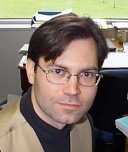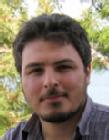News 2008
- 2009
- 2008
- Warwick Mathematics research rated “World-Leading” in RAE2008 (18 December 2008)
- Dwight Barkley elected Fellow of the American Physical Society (12 November 2008)
- Martin Hairer wins 2008 Philip Leverhulme Prize (6 November 2008)
- Ian Stewart receives IMA-LMS Christopher Zeeman Medal (4 September 2008)
- Andrew Stuart wins 5-year ERC Advanced Investigator Grant (14 August 2008)
- David Preiss receives LMS Pólya Prize (6 July 2008)
- Martin Hairer receives LMS Whitehead Prize (6 July 2008)
- EPSRC Fellowships for Bill Hart, James Robinson and Samir Siksek (6 July 2008)
- Dave Wood receives a Commendation in the Warwick Awards for Teaching Excellence (5 June 2008)
- Martin Hairer wins MacWorld `Eddy' for his audio editing software (28 February 2008)
- Professor Yoshiaki Maeda appointed honorary professor (27 February 2008)
- 2007
18 December 2008Warwick Mathematics research rated “World-Leading” in RAE2008Warwick Pure Mathematics was ranked 2nd in the UK in the 2008 RAE and Applied Mathematics ranked equal first in the UK for the proportion of its research given the top 4* “world-leading” rating. Head of Department Professor Colin Sparrow said: I am delighted that Warwick's international reputation for research has been confirmed by the results of the most recent Research Assessment Exercise, RAE2008. Pure Mathematics came 2nd in the UK using each of the three most commonly used ranking systems. Applied Mathematics came first equal in the UK when ranked according to the proportion of 4* (world-leading) research, and 7th in the UK when ranked according to GPA (as used, for example, by the Times Higher Education). Taking Pure and Applied Mathematics together, over 70% of our research was rated as either 4* (world-leading) or 3* (internationally excellent). This outcome reflects the excellence and originality of all our staff, the strong support of the University for the Department and its research strategy, and the hard work of everyone concerned over the whole of the RAE assessement period (2001–2007). |
12 November 2008Dwight Barkley elected Fellow of the American Physical Society
According to the APS citation, Dr. Barkley was elected a Fellow for “combining computation and dynamical systems analyses to obtain remarkable insights into hydrodynamic instabilities and patterns in diverse systems, including flow past a cylinder, channel flow, laminar-turbulent bands, and thermal convection.” The APS Fellowship Program was created to recognize members who may have made advances in physics through original research and publication, or made significant innovative contributions in the application of physics to science and technology. They may also have made significant contributions to the teaching of physics or service and participation in the activities of the Society. Each year, no more than one half of one percent of the Society membership is recognized by their peers for election to the status of Fellow in the American Physical Society. |
6 November 2008Martin Hairer wins Philip Leverhulme Prize
The Leverhulme Trustees have announced the results of the 2008 competition for Philip Leverhulme Prizes. These Prizes, with a value of £70,000 each, are awarded to outstanding young scholars who have made a substantial and recognised contribution to their particular field of study, are recognised at an international level, and whose future contributions are held to be of correspondingly high promise. The Prizes commemorate the contribution to the work of the Trust made by Philip Leverhulme, the Third Viscount Leverhulme and grandson of the Founder. Martin receives his prize in the field of Mathematics and Statistics for his work in Probability and Analysis. |
4 September 2008Ian Stewart receives IMA-LMS Christopher Zeeman Medal
The Christopher Zeeman Medal was launched this year as a triennial award of the IMA and LMS to recognise and reward the contributions of mathematicians involved in promoting mathematics to the public, and to encourage others to work in this area by demonstrating that such activities are valued and are a part of a mathematician’s roles and responsibilities. The Medal is to be presented by Sir Christopher at a joint meeting of the two societies hosted by the Science Museum on Tuesday, 9 June, 2009 where Ian will give a lecture entitled "The Curious Case of the Courant–Robbins Train". |
14 August 2008Andrew Stuart wins 5-year ERC Advanced Investigator Grant
|
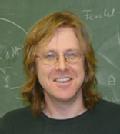 |
A 5-year European Research Council Advanced Investigator Grant has been awarded to Andrew Stuart to study Problems at the Applied Mathematics–Statistics Interface. The grant will support 50% of his time as well as post-docs and research students. At the time of writing, this is the only UK success from the Mathematical Foundations (PE1) panel.
Applied mathematics is concerned with developing models with predictive capability, and with probing those models to obtain qualitative and quantitative insight into the phenomena being modelled. Statistics is data-driven and is aimed at the development of methodologies to optimize the information derived from data. The increasing complexity of phenomena that scientists and engineers wish to model, together with our increased ability to gather, store and interrogate data, mean that the subjects of applied mathematics and statistics are increasingly required to work in conjunction in order to significantly progress understanding. Mathematically Data Assimilation is concerned with the interface between these two disciplines, aimed at problems in differential equations where profusion of data and the sophisticated model combine to produce the mathematical problem of obtaining information from a probability measure on function space. Applications are far reaching and include the atmospheric sciences, geophysics, chemistry, econometrics and signal processing.
6 July 2008David Preiss receives LMS Pólya Prize
|
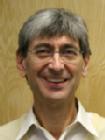 |
The Pólya Prize is awarded to Professor David Preiss, FRS of the University of Warwick in recognition of his outstanding contributions to analysis and geometric measure theory.
The LMS citation reads: “Professor Preiss starting publishing his original results as a student and as a young mathematician in the 1970s, was able to answer a problem posed by Felix Hausdorff in 1935. In particular, the LMS wanted to honour Professor Preiss for a result published in 1987 in a paper called ‘Geometry of Measures’, where he solved the remaining problem in the geometric theoretic structure of sets and measures in Euclidean space.”
The LMS PÓLYA PRIZE is awarded in recognition of outstanding creativity in, imaginative exposition of, or distinguished contribution to, mathematics within the United Kingdom.
6 July 2008Martin Hairer receives LMS Whitehead Prize
|
 |
A Whitehead Prize is awarded to Dr Martin Hairer of the University of Warwick for his contributions to the theory of stochastic differential equations.
From the LMS citation: “His work is characterized by the range of problems tackled and the breadth of techniques employed, blending ideas from stochastic analysis, the theory of random dynamical systems, partial differential equations, functional analysis and ergodic theory.”
LMS WHITEHEAD PRIZES are awarded to mathematicians with less than 15 years experience at the post doctoral level (allowing for career breaks).
6 July 2008EPSRC Fellowships for Bill Hart, James Robinson and Samir Siksek |
|
An EPSRC Career Acceleration Fellowship is awarded to Bill Hart.
This project aims to develop new algorithms to aid researchers in computational number theory and other areas of computational Mathematics, Science, and Engineering. Ever since the advent of multi-core desktop computers, there has been a demand for algorithms which are able to take advantage of recent advances in computing technology. Many current algorithms cannot be split apart into multiple parts and run on separate computing cores. Instead the algorithms need to be completely redesigned. Nowhere is this more true than in Computational Number Theory. However many of the basic techniques used in that area of mathematics are similar or the same as those used in other areas of mathematics. For example, fast algorithms for multiplying very large polynomials make use of the Fast Fourier Transform, a technique that is used in signal processing, mathematical modelling and many other areas. In order to facilitate the design of new algorithms, a number of interesting problems in computational number theory have been chosen.
|
|
|
|
|
A five year EPSRC Leadership Fellowship has been awarded to James Robinson to work on the Project ‘Navier–Stokes equations: dynamical systems and functional analysis’
One of the Clay Mathematics Institute's Millennium Prize problems is to settle the question of the existence (or otherwise) of unique solutions for the three-dimensional Navier–Stokes equations. This reflects the fact that whilst they are used extensively in both theoretical and computational analyses of every aspect of fluid flow, their mathematical foundations are still uncertain. This Project is to study two aspects of these mathematical foundations: The formation of a ‘singularity’ is the process by which (roughly speaking) the predictive power of the three-dimensional model can be lost, and this project will consider how one can limit the formation of these singularities (should they actually occur). The second half of the project considers questions that arise from the two-dimensional Navier–Stokes equations. This model may have less direct physical relevance, but does not suffer from the fundamental problems that bedevil its three-dimensional counterpart: this makes it a useful testbed for techniques that could eventually be applied in the three-dimensional case. The theory of dynamical systems (of which ‘chaos theory’ forms a part) can be applied to the two-dimensional equations. In this context, it is possible to show that the equations have an attractor that is finite-dimensional. In a very loose way this says that ‘what happens in the long run should be relatively easy to describe’. I intend to give a rigorous (and mathematically concrete) interpretation of this idea. |
|
|
|
|
A five year EPSRC Leadership Fellowship has been awarded to Samir Siksek to work on the project Explicit Higher Arithmetic Geometry.
Samir's work is primarily concerned with Diophantine equations. An equation is called Diophantine if we seek solutions in integers or rational numbers. An example of a Diophantine equation is xn+yn=zn. Fermat's Last Theorem—posed by Fermat 350 years ago and only proved by Wiles in 1995—states that there are no solutions with n at least 3 and x,y,z all non-zero integers. The project aims to bring recent advances in arithmetic geometry to bear on the explicit study of Diophantine equations. For example, the project will investigate generalizations of Wiles' proof of Fermat's Last Theorem involving Diophantine equations over real quadratic fields. |
5 June 2008Dave Wood receives a Commendation in the Warwick Awards for Teaching Excellence
|
 |
Dave Wood, a Principal Teaching Fellow and Director of Undergraduate Studies in the Department of Mathematics, is a Commendee in the 2007-08 Warwick Awards for Teaching Excellence and receives an award of £2,000.
Dave's participation in the Awards competition was strongly supported by the Maths SSLC who said “Dave is an engaging, effective and friendly lecturer who really cares about his students”. Dave has also been involved in several related projects including the National Academy for Gifted and Talented Youth from its outset in 2002, being the only academic to run a course at each and every Warwick Summer School and is currently involved in Gaia Island Project and the IGGY Summer U. One of Dave's current involvements in novel teaching methods is the Warwick University Maths island in Second Life.
Dave's influence even reaches into my first year tutorials when my students remind me that “Maths is not a spectator sport!”.
28 February 2008Martin Hairer wins MacWorld ‘Eddy’ for his audio editing software
|
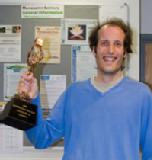 |
Martin Hairer, an associate professor in the Warwick Mathematics Institute, is pictured here with his 2007 ‘Eddy’, the Oscar of the Macintosh world, which he was awarded for his audio editor Amadeus Pro v1.1. Amadeus Pro is a fully featured multitrack editor as well as allowing conversion between many different audio file formats and supports batch operations.
From MacWorld's article: “And what sets Amadeus Pro apart? Certainly its wide-ranging capabilities, including extensive multitrack editing, waveform analysis tools, batch processing, click and noise repair, and support for just about any file format you’d care to throw at it. But then there’s the price tag: $40. There just isn’t an under-$50 audio editor as capable and intuitively designed as Amadeus Pro.”
A detailed look at a more recent version (1.2) can be found in the Mac Gems section of the MacWorld website where it receives a 4 mice rating.
27 February 2008Professor Yoshiaki Maeda appointed honorary professor
Professor Yoshiaki Maeda of Keio University, Japan has been appointed to an honorary professorship in the Mathematics Institute. He has been associated with the WMI for around three decades as a frequent visitor, and as a conference organiser at Warwick and more generally in the UK — longer than all but a handful of the existing Warwick mathematics staff. He has been a tireless organiser of a UK–Japan Winter School, held in Britain in January aimed at bringing together young Japanese and British researchers. These began in 1999 and the 8th was just held in Warwick this January. This was the second actually held in Warwick although members of the Institute have been actively involved in most of them, and a regular feature has been visits by participants to Warwick after the Schools. A major aim of these, beside their scientific remit, has been to prepare the way for collaboration between young British and Japanese researchers in mathematics. Professor Maeda has wide mathematical interests especially in Differential Geometry, Symplectic Geometry and Global Analysis. His application of noncommutative geometry to formal deformation quantization through his theory of Weyl manifolds gave a geometric construction of star products for symplectic manifolds quite different from the previous Cech-theoretic approach. His present work is focussed on convergence problems for deformation quantization, and gives mysterious new phenomena not arising in formal deformation quantization. |





